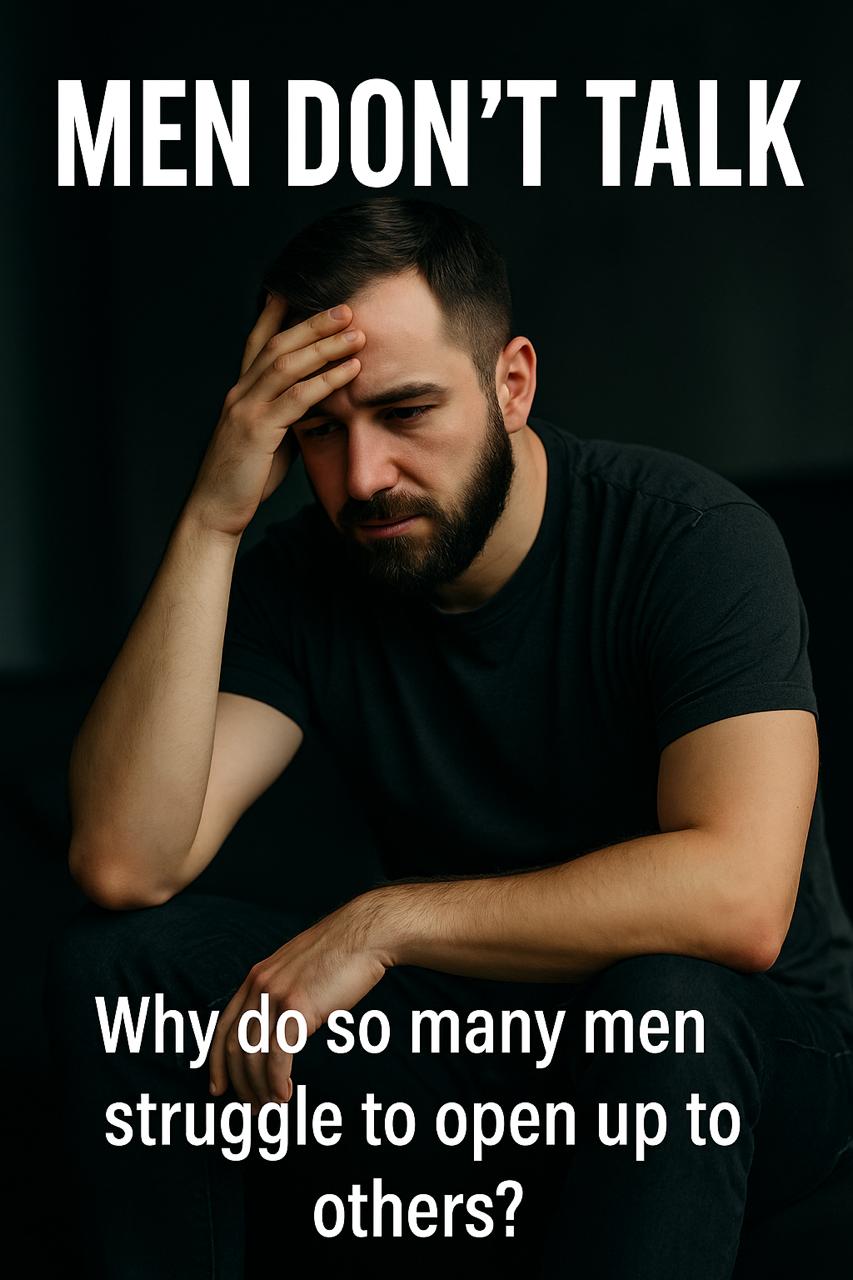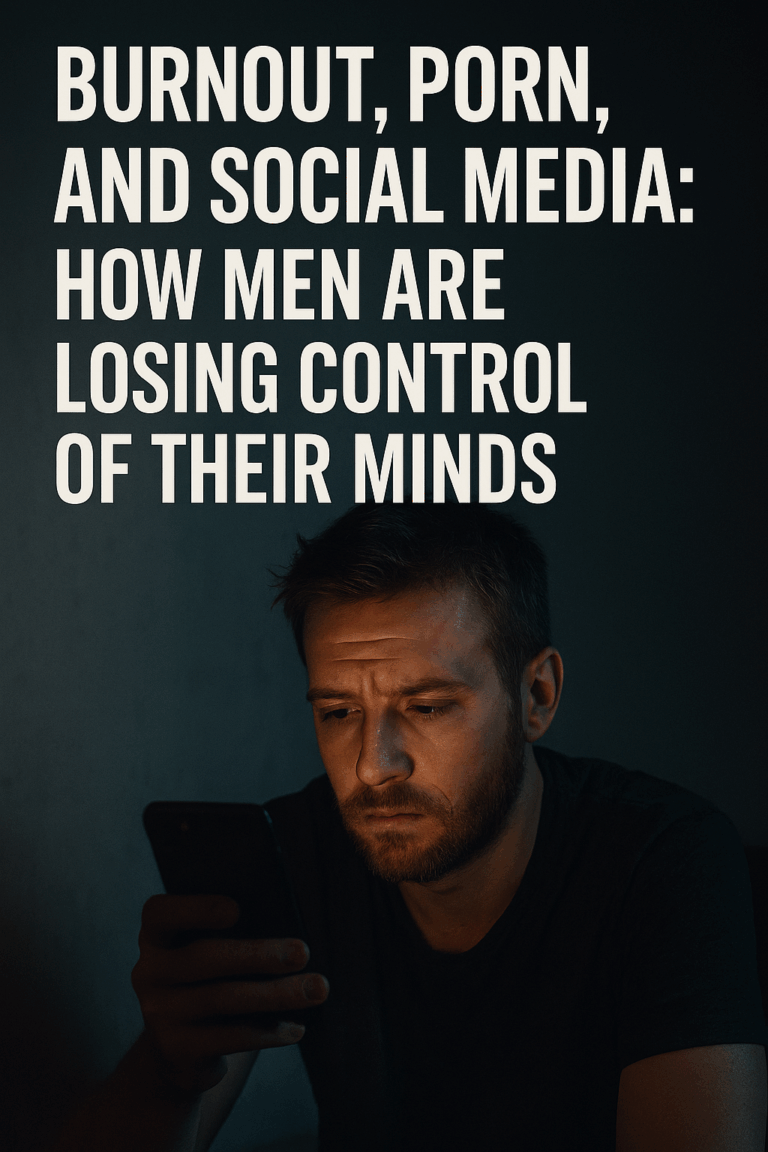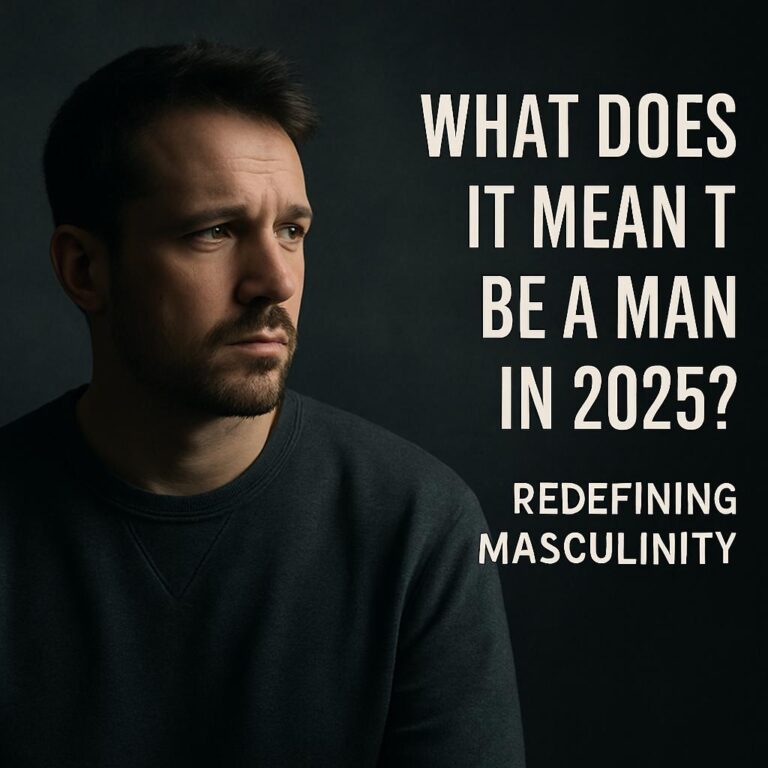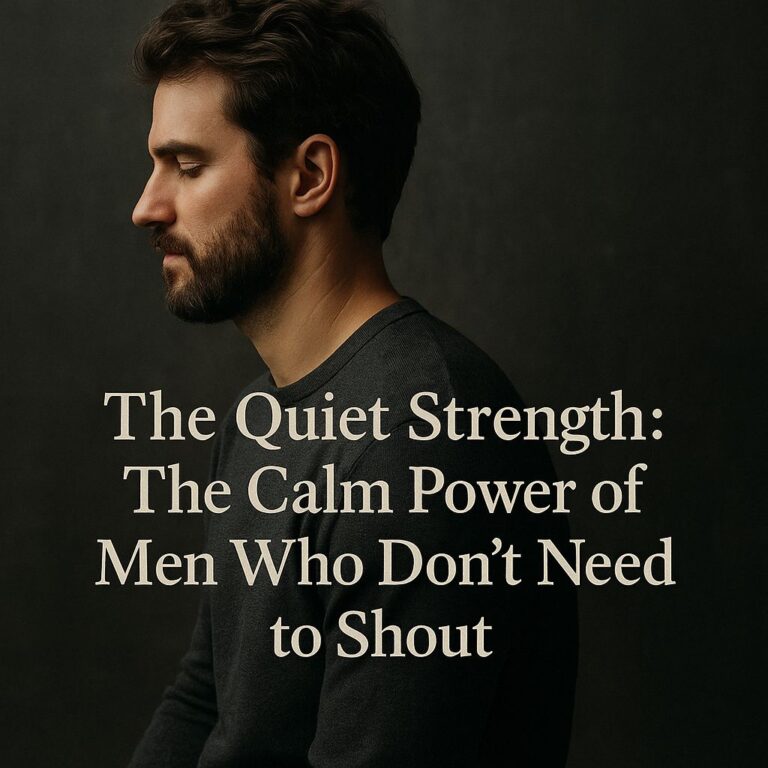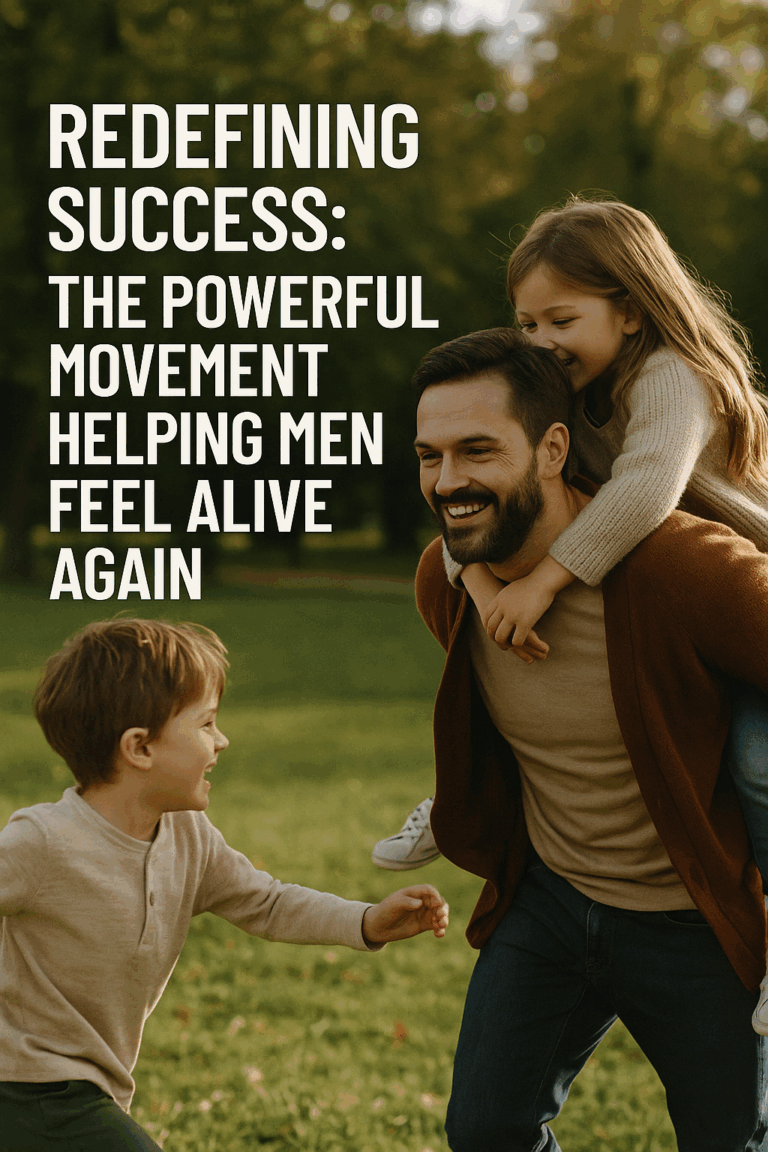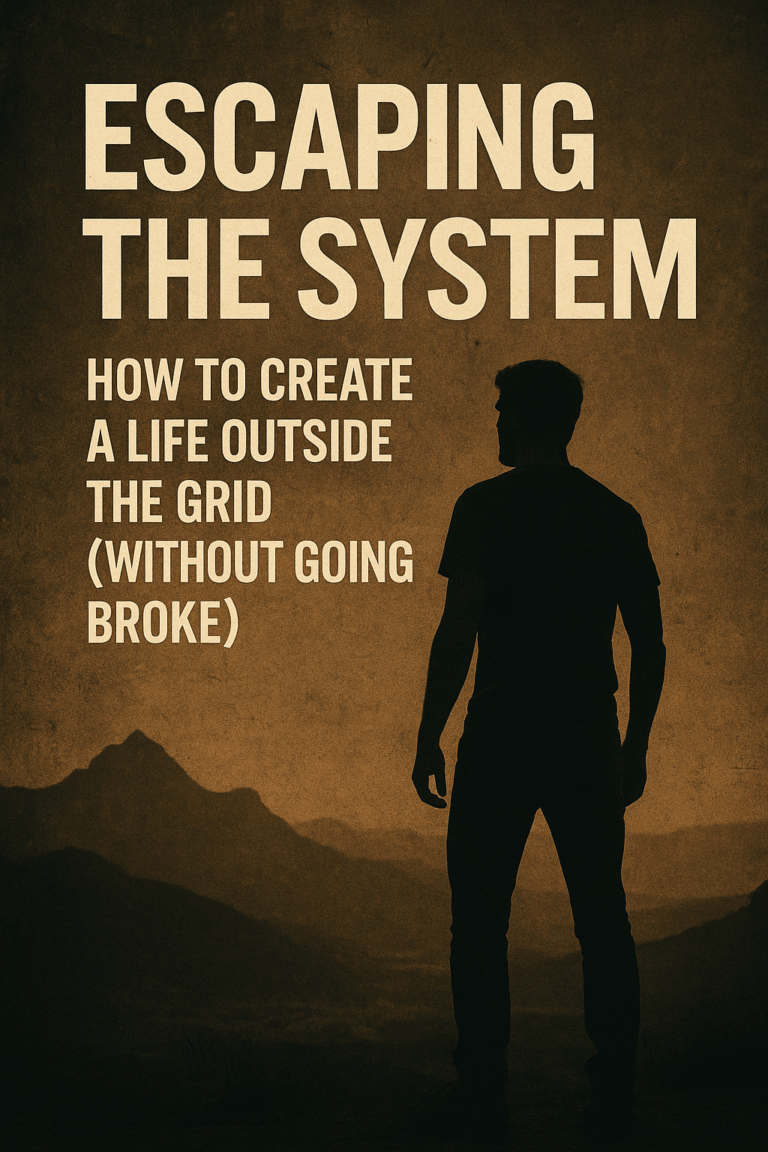Men Don’t Talk: The Silent Struggle for Emotional Connection
Men Don’t Talk: The Silent Struggle for Emotional Connection
“I’m good.” “All fine.” “Just tired.”
These are often the default answers men give when asked how they’re doing. Not because they’re always fine, but because saying more feels… dangerous. Weak. Unnecessary. Or maybe, they’ve just forgotten how to say what’s really going on.
In many places — the US, Canada, Australia, and beyond — men grow up learning a subtle but powerful rule: don’t show too much. Don’t cry. Don’t vent. Don’t let emotions leak through the armor. And this silence, generation after generation, becomes normal.
The Unspoken Code Between Men
There’s an unspoken agreement in most male circles: keep it light, keep it surface. Talk about sports, business, weather, maybe relationships — but never the depth. Never the loneliness, the fear, the trauma, the confusion.
Why? Because we were taught that talking about emotions isn’t masculine. That vulnerability is exposure. And exposure is weakness. We were trained, culturally and socially, to believe that silence equals strength.
The Weight of Always Being “Strong”
Being strong isn’t the problem. The problem is when strength means holding everything in. When a man feels that he must carry pressure silently — providing, protecting, performing — with no space to say: “I’m overwhelmed.”
In many western cultures, men internalize from an early age that their value is in what they do, not in who they are. And that pressure leads to quiet battles: with anxiety, with disconnection, with burnout.
It’s Not Just About Crying
This isn’t about telling every man to cry more. It’s about creating room to be human. To say, “I’m struggling,” without shame. To ask for help without feeling less of a man. To be both solid and soft. Brave and open. Tough and tender.
But Why Don’t We Talk?
- Fear of judgment: Many men fear being seen as weak or dramatic if they open up.
- Lack of emotional vocabulary: If you were never taught to express emotion, how do you even begin?
- Cultural conditioning: Movies, fathers, mentors — many reinforce the “strong silent type.”
- Lack of safe spaces: Most male friendships aren’t emotionally safe — they’re based on activities, not depth.
What Happens When We Don’t Speak
Silence has consequences. Emotional suppression has been linked to higher rates of depression, heart disease, addiction, and even suicide among men. Not because men are broken — but because many are emotionally isolated.
In Australia, suicide is the leading cause of death for men aged 15–44. In the US and Canada, similar patterns follow. And much of it comes back to one thing: disconnection.
So, What Can We Do?
This isn’t about blaming. It’s about building new ground. Here are ways we can shift this narrative:
- Start with small truths: Saying “I’ve been a bit off lately” can open a door without being too heavy.
- Create deeper spaces with other men: Instead of just watching the game, ask a friend how he’s really doing. Share your own truth — vulnerability invites vulnerability.
- Use writing as an outlet: If speaking feels hard, journal first. It helps untangle the knots inside.
- Therapy isn’t weakness: It’s the gym for your inner life. Real strength is knowing when you need guidance.
- Redefine masculinity: What if being a man meant presence, depth, kindness, and resilience — not suppression?
Finding Balance: Strength and Sensitivity
Men are biologically wired for strength — higher testosterone levels often shape competitiveness, assertiveness, and physical resilience. But men also carry oxytocin, serotonin, and deep emotional capacity. Sensitivity isn’t a glitch — it’s part of the package.
Real power isn’t in emotional shutdown. It’s in emotional fluency. It’s being able to hold space for your family, your partner, your community — not by hiding your struggles, but by facing them.
Imagine This
Imagine a world where two men at a coffee shop can talk about doubt, loss, purpose. Where “how are you” means something. Where emotional health is seen as leadership. Where sons grow up seeing their fathers cry and lead, express and act.
That world isn’t far — but it starts with us. With you. With one honest conversation. One moment of “I get it too.”
The Cost of Emotional Isolation in Daily Life
We often talk about the big picture — depression, suicide, trauma. But emotional isolation also shows up in the small, quiet moments. It’s in the hesitation before reaching out to a friend. It’s in the tension between fathers and sons who don’t know how to say, “I love you.” It’s in marriages where connection fades not from lack of love, but from emotional silence.
Men are expected to provide. To lead. To hold it together. But what happens when we’re the ones needing support? Many men don’t know how to ask — or believe they’re not allowed to. That silent belief becomes internalized: “I’ll deal with it alone.” But over time, that alone becomes loneliness. And loneliness, unaddressed, becomes suffering.
It’s Time to Normalize Male Sensitivity
We often praise empathy, gentleness, and emotional intelligence in women — but hesitate to do the same with men. What if we changed that? What if we celebrated a man who listens deeply, who expresses grief, who shows affection, who admits fear? What if we saw that as maturity, not fragility?
In truth, sensitivity is not weakness — it’s awareness. It means a man is tuned in. Present. Courageous enough to feel deeply in a world that keeps telling him not to. That’s not weakness. That’s evolution.
This Blog is That Space
Grounded Path Life exists to create space for the modern man. The man who wants to feel more without losing strength. The man who’s done with silence and ready to live in truth. This is your place, your tribe, your grounded path.
Let’s walk it together.

